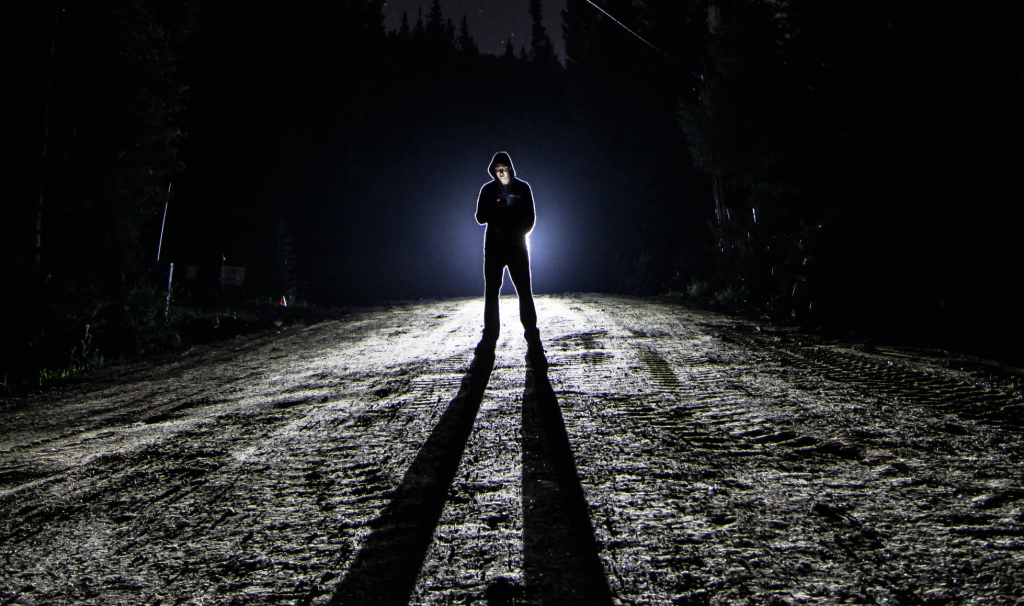At about 11 a.m. Thanksgiving, someone stole my daughter’s Subaru from the driveway in front of her dad’s Lake Highlands home, where the family was gathering for lunch.
I arrived just after she realized the car was gone. Chaos ensued. “Did you leave the keys in it?!” we hollared unhelpfully. She admitted through tears that she “might have.”
I called the police, my dad drove around the neighborhood, my ex husband called the dealership and then OnStar.
The police would not be out to take a report until the next day. But through OnStar we tracked the vehicle to a nearby address. Excited, we updated law enforcement, but the knowledge did nothing to elevate our case’s urgency. Sparing you the finer details, this led my former spouse and our respective septuagenarian fathers to stage a stakeout in a known high-crime apartment complex.
And who among us would not feel vengeful at someone for stealing our things, making our daughters cry, ruining our Thanksgiving?
“Everybody’s had something stolen from them and wished they had gotten it back, had some agency in that scenario, had something they could do,” says one petty-crime victim in this Washington Post piece, as he explains why he put an AirTag tracker on his electric scooter. “It feels empowering and feels accessible, that’s what’s attractive about it.”
But that’s in San Francisco. Here in Texas the victims have guns. That mixed with old-man rage rooted in past petty injustices made for a fraught situation.
Today we can trace our phones, laptops, cars and purses. We can watch video of thieves plucking packages off our porches. We share suspects’ images on social media, instigate hyperlocal manhunts. All before the police arrive to take a report.
One Lake Highlands Estates neighbor shared a similar experience this week in an all-neighborhood post on Nextdoor. (My dad shared it with me, with the comment “Sound familiar?”)
At about 7:30 a.m. on a recent weekday, two opportunistic thieves took off in this neighborhood resident’s car, which, he indicates, was warming up in the driveway for the commute to school.
The victims caught it on video — the perps look like a couple of young guys, wearing backpacks, posing as teenagers walking to school.
But it typically will be hours, maybe a day, before police arrive to see the evidence. That’s because non-violent crimes like these are very low priority. Even if you have video of the perpetrators or eyes on your stolen Subaru. Last year, a memo about not dispatching officers to non-violent crimes made news. (While the directive was retracted, it seems it wasn’t, really).
The Post article examines the “balance of safety, revenge and wait times.”
As one police spokesman told the paper, “There are some people savvy enough to retrieve their property, but we don’t recommend that at all. You don’t know what people are willing to do.”
(We put a call in to Dallas Police Department, but 24 hours after a public information officer said someone would get back to me, I hadn’t heard back).
Understaffed and working hard to reduce violent crimes, Dallas police are often dealing with more urgent situations. So it makes perfect sense that nonviolent property crimes are pushed to the bottom of the priority queue.
The victims in the Lake Highlands Estates case probably got that, which is why they “played detective,” as they put it, and “took matters into our own hands.”
With surveillance images of the car thieves, the complainants say they went to local store and garage attendants, asking if they knew the guys. One did and suggested they check the Estate Lane Motel 6 parking lot.
“As a long shot, we drove by there and sure enough there was my wife’s car,” the neighbor notes.
The couple immediately alerted police, but it was still a low priority. So they found a patrol cop to help.
“We found an officer driving by and asked him to please follow us. He saw the car and the suspect was inside of it; suspect immediately ran and several police chased him down through the mud and got him into custody.”
Now that is a satisfying outcome.
In my case of the would-be vigilante grandpas, they waited three hours for either police to show or the suspects to emerge. Meanwhile, OnStar disabled our stolen vehicle. As evening fell, and heads cooled, the guys settled on calling a tow truck to retrieve the Subaru. For the record, I — like the police and the makers of GPS trackers and OnStar, etcetera — discourage the whole stakeout thing.
Trackers such as Apple AirTag are “part of a booming ‘do it yourself’ security market that can generate as much fear as safety,” as the Post puts it. Many are marketed as devices that help you find lost keys and such but are used off label for tracking stolen property.
The companies that make trackers recommend calling police and never confronting someone you think has stolen your gear.






